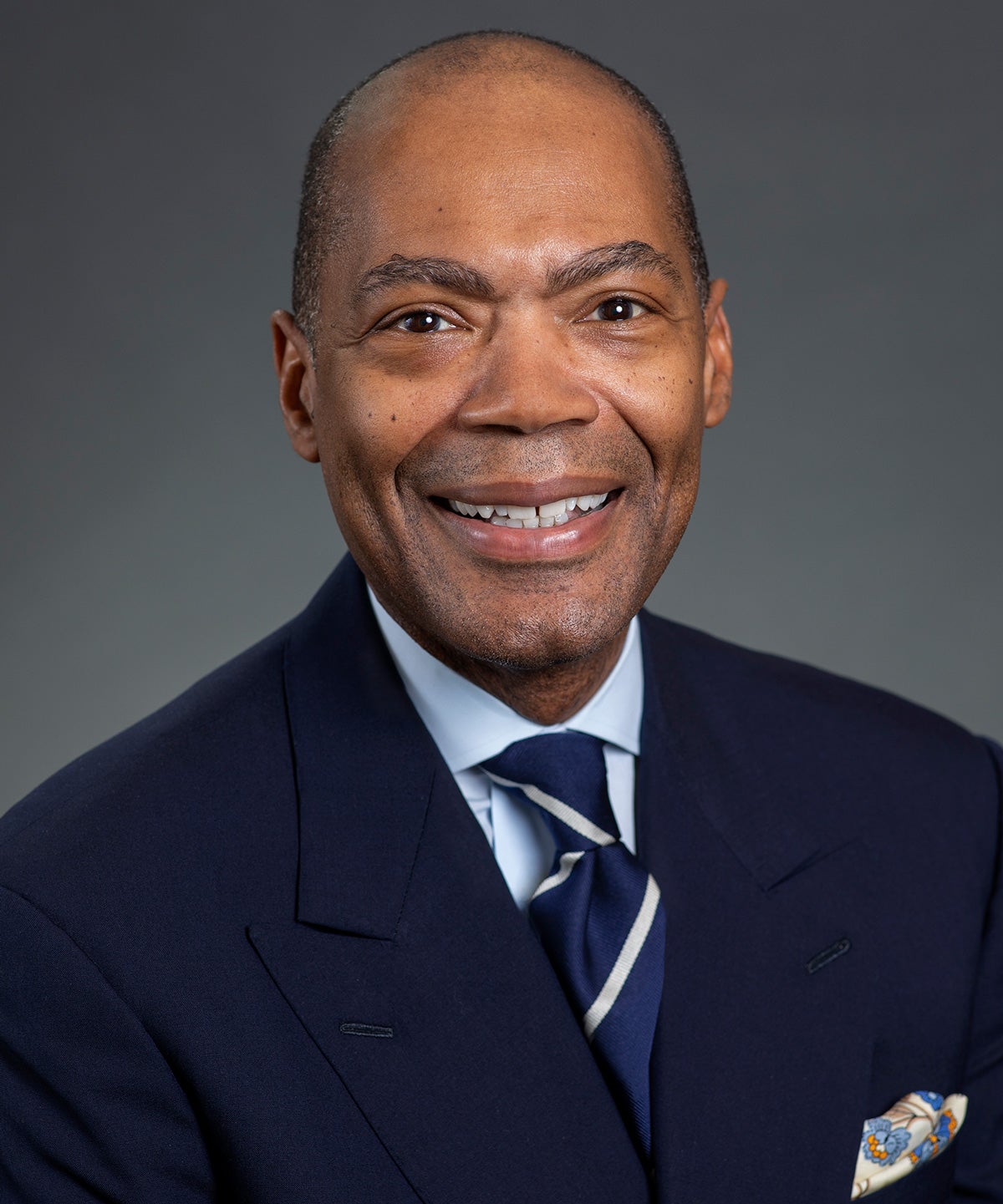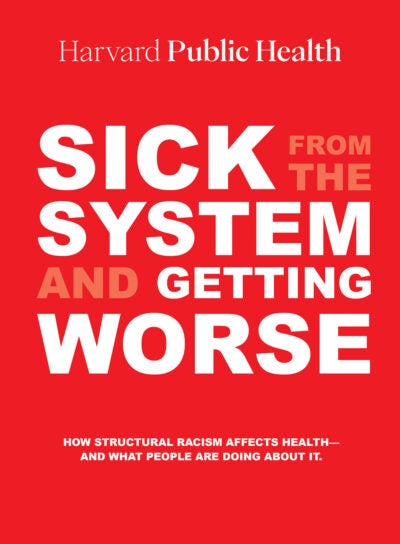People
Two years after a landmark report on health disparities, a Yale New Haven cardiologist sees signs of hope
Cardiologist Keith Churchwell, president of Yale New Haven Hospital, co-authored a presidential advisory from the American Heart Association in November 2020. The report declared structural racism a fundamental driver of health disparities in the U.S. It urged the AHA to advance anti-racist policies and practices and called for everyone in the field to commit to “transforming the conditions of historically marginalized communities” to close the racial health gap.
As the second anniversary of the report approaches, Harvard Public Health spoke with Churchwell about its findings, and its impact.

Q: What was the impetus for the American Heart Association’s call to action?
A: We realized the 2020 impact goals we had set for a 20% reduction in morbidity and mortality from cardiovascular disease were not going to be met. A big reason for that was we were not successfully evaluating and treating underrepresented communities, which have significant rates of cardiovascular disease.
So, we took a step back and tried to understand why we were seeing such disparity in these outcomes.
That review, along with an evaluation on health equity and health disparities, led us to write a paper identifying structural racism as a foundational problem. From a health standpoint, ongoing racism is a primary reason for why we are where we are. These issues are fundamental barriers to improving the health of this country, at the local, state, and national levels.
Q: How do you define structural racism?
A: Laws, policies, and procedures in the U.S. have caused persistent disparities in how individuals are treated, from a legal, social and operational in their day-to-day lives.
These structures have racist origins, and date back to the time of slavery. They include Jim Crow laws, redlining, and other policies that did not allow Black Americans to realize their full place in American society.
Sign up for Harvard Public Health
Delivered to your inbox weekly.
Q: The report’s findings were stark. Have we seen progress in the two years since it was published?
A: There’s definitely a greater degree of awareness. Multiple institutions have looked at the paper as a benchmark or a template. The next step—a big step—is thinking about policy changes.
There are a lot of facets here: How do we improve the housing situation to create a better environment for our patients and their families to grow up in? There’s also nutritional security: How do we improve access to a healthy diet? We also need a better educational foundation for our children, to move everyone forward. We need to listen to the affected communities about all their needs, and we need to think through a plan of action.
At Yale New Haven Hospital, we do a biannual community health assessment. We go to the communities of color we serve, evaluate what we offer and what other resources are available, and ask the community where they see deficits. They talk not only about health, but about transportation, education, nutrition — all of which are in fact social determinants of health.
This assessment helps us to identify need. Then we find the partners who are active in those spaces on an everyday basis and work with them to try to meet those needs.
Q: Can you give me an example of a specific program you’ve started to address those community needs?
A: A few years ago, we started Walk with a Doctor, where physicians at Yale New Haven come out during the spring and summer months and walk a mile along an old railroad causeway that goes through the Dixwell neighborhood of New Haven. We invite everyone in the neighborhood to join us. There’s a regular group and then others who come from time to time.
We walk together for a mile, and at the end, we stay around and answer whatever questions people have about medical issues. We try to help them stay healthy and build a trusted connection with physicians and with the hospital.
We also recently kicked off a program to work with barbershops in the greater New Haven area to evaluate hypertension. It’s not just a bunch of cardiologists knocking on the door saying, ‘We’re here to help,’ which would probably get a very poor response.
The barbers are trusted members of the community, and we’ve trained them on the impact of hypertension and how to evaluate blood pressure. In turn, they have helped us think through models for testing and treatment recommendations that people will accept and follow through on. Barbershops host sessions where they measure blood pressure and communicate to their clients how important it is to keep blood pressure under control. These trusted voices help us bridge the divide that in the past has made it difficult for us to effectively communicate the seriousness of hypertension to the Black American community.
Q: It’s been almost 125 years since W.E.B. DuBois first identified structural racism as a major driver of health disparities. We still have enormous gaps. Are you frustrated? Do you have faith things will improve?
A: I’m optimistic. We are starting to see investment in tackling these disparities. And the next generation of health care providers have made clear that this is really a part of them now; these are problems that they want to solve.
That’s why I have a lot of optimism. If we don’t solve it, I think those who will take care of us in the future will solve it. The next generation Is totally invested in this work.
Photo courtesy of Keith Churchwell



